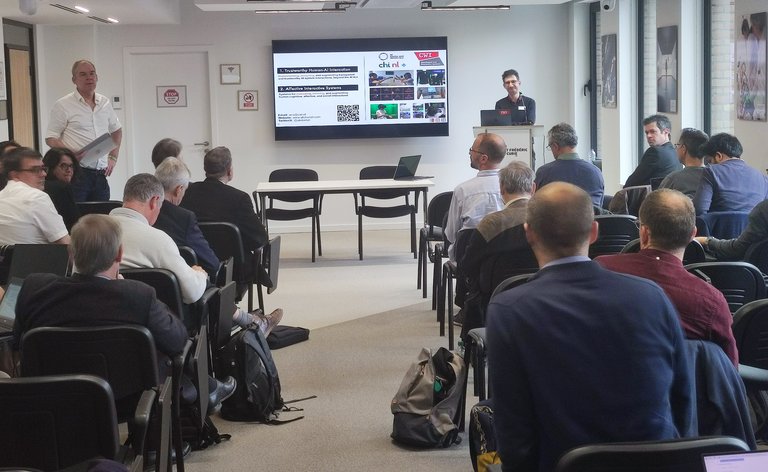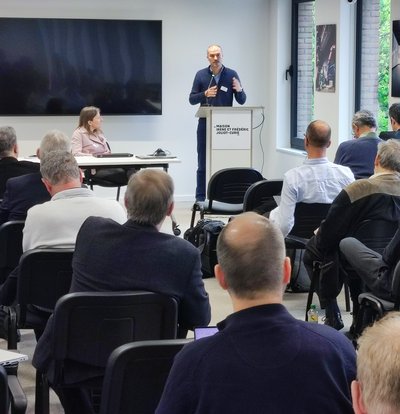Last week, ERCIM – the European Research Consortium for Informatics and Mathematics – organized its first visionary event in Brussels for EU policy makers and researchers. The topic was ‘Challenges and opportunities of Foundational Models and Generative AI for science and society’. Foundational Models are, for instance, Large Language Models (LLMs) as used by ChatGPT, Gemini and other systems. With these discussions, a vision document will be formulated that could help European research institutes and the European Commission (EC) with determining research directions. CWI and Inria were co-sponsor of the day.
Broad Visions
Han La Poutré (CWI), was, as Vice President of ERCIM, the main organizer of this day, together with Marie-Hélène Pautrat (Inria) and Joost Geurts (Inria). They say: “ERCIM combines the expertise of 16 renown institutes in computer science and mathematics. Together we have knowledge and strength to envision future scientific challenges in a broad way. This does not just mean scientific roadmaps, but also broader visions about impact and challenges.”


